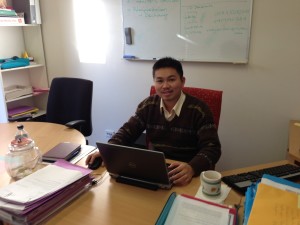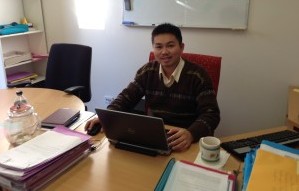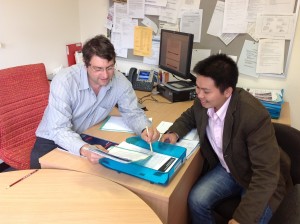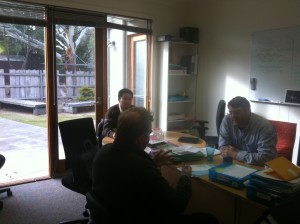Ho Nhan Ai
CLE placement at Monash Oakleigh Legal Service and Springvale Monash Legal Service
From an academic point of view, since I have been at Monash Oakleigh Legal Service and Springvale Monash Legal Service, I understand more about theory and principles of clinical legal education. During my placement, I have done quite a lot of research and readings about clinical legal education. I understand that there is not only one fixed model for running a legal clinic. Rather, based on different situations and the availability of resources (including human, infrastructure, finance, and external volunteer lawyers), there are different forms of programs. We could establish and run a legal clinic so that it could suit the situation. For instance, in the context of Vietnam, it is worthwhile to think about community legal education (also known as community teaching) as being the beginning stage. In my view, conducting a community legal education trip is quite simpler and easier than running a live-client clinic. When dealing with community legal education, we always have more time for preparation and tend to be more proactive, while running a live-client clinic requires a lot of “readiness” for many unexpected situations, cases and clients.
 However, doing community legal education, from my opinion, does not provide students with some of the professional practice skills and knowledge they need for their future career. From my observation, such skills as client interviewing, legal writing (especially writing letters), reflection and critical thinking are not well developed with students in community legal education programs. Contrarily, students following placement at a live-client clinic are very well-equipped with these skills before and during their placement. In addition, by working with real legal cases and clients, these practical skills are improved and developed day after day. After 19 weeks working as a professional practice student at a clinic, students become professionally mature. During my placement, I had an opportunity to talk with former and current professional practice students about how different they evaluate and compare themselves with students not in the program. All of them responded with an appreciation of the practical benefits they achieved from the program. There are some students who finished their last-semester placement and decided to stay in the program as a volunteer because they would like to continue to improve their practical skills.
However, doing community legal education, from my opinion, does not provide students with some of the professional practice skills and knowledge they need for their future career. From my observation, such skills as client interviewing, legal writing (especially writing letters), reflection and critical thinking are not well developed with students in community legal education programs. Contrarily, students following placement at a live-client clinic are very well-equipped with these skills before and during their placement. In addition, by working with real legal cases and clients, these practical skills are improved and developed day after day. After 19 weeks working as a professional practice student at a clinic, students become professionally mature. During my placement, I had an opportunity to talk with former and current professional practice students about how different they evaluate and compare themselves with students not in the program. All of them responded with an appreciation of the practical benefits they achieved from the program. There are some students who finished their last-semester placement and decided to stay in the program as a volunteer because they would like to continue to improve their practical skills.
Looking back to Vietnam, at the current early stage of clinical legal education, almost all the legal clinics are focusing on community legal education. In my opinion, now it is time for Vietnam to think about a model of live-client clinics. Want it or not, students will use their practical skills in their future career and these skills can be developed during placements at live-client legal clinics. However, it would be more realistic and reasonable for us to think about a ‘small-size’ clinic rather than such big clinics as Monash Oakleigh Legal Service or Springvale Monash Legal Service with almost 40 years of development history.
In order to develop and maintain a live-client legal clinic in Vietnam, there are many issues to be considered including human resources, financial funding, legislation support, and of course, political willingness from the government and law schools. These issues, along with others, are expected to be comprehensively addressed and discussed in my up-coming PhD research. Challenges and obstacles for Vietnamese clinical legal education in general and live-client clinics are obviously identified, but a lot of opportunities are also recognized. Since Vietnam is a ‘newcomer’ in clinical legal education, experience and lessons from other countries such as the United States, Australia, and Canada should be very beneficial and provide a big advantage. In addition, under the supports from organizations such as UNDP and BABSEACLE, a basic foundation for clinical legal education has been created. There is a belief and promise that from this basic foundation, a live-client clinic could be possible in the near future, especially with supports from UNDP, BABSEACLE and others who will still be around as clinical legal education in Vietnam moves forward.
But more importantly, the Vietnamese government and law schools should take these opportunities in order to develop and improve clinical legal education, especially live-client clinics. From my insight, thinking and observation, I can see the potential for a live-client clinic to be established and developed in Vietnam in the near future.



